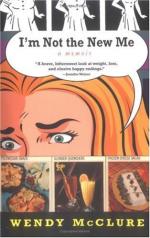[Footnote 7: This letter is dated October 3, 1845. It is now owned by the son of Williamson Durley, Mr. A.W. Durley of West Superior, Wisconsin. Mr. C.W. Durley of Princeton, Illinois, kindly secured the copy for us from his brother.]
[Illustration: SCHOOLHOUSE AT BRUCEVILLE, INDIANA, WHERE LINCOLN SPOKE FOR CLAY IN 1844.]
“When I saw you at home,” Lincoln began, “it was agreed that I should write to you and your brother Madison. Until I then saw you I was not aware of your being what is generally called an Abolitionist, or, as you call yourself, a Liberty man, though I well knew there were many such in your county.
“I was glad to hear that you intended to attempt to bring about, at the next election in Putnam, a union of the Whigs proper and such of the Liberty men as are Whigs in principle on all questions save only that of slavery. So far as I can perceive, by such union neither party need yield anything on the point in difference between them. If the Whig abolitionists of New York had voted with us last fall, Mr. Clay would now be President, Whig principles in the ascendant, and Texas not annexed; whereas, by the division, all that either had at stake in the contest was lost. And, indeed, it was extremely probable, beforehand, that such would be the result. As I always understood, the Liberty men deprecated the annexation of Texas extremely; and this being so, why they should refuse to cast their votes [so] as to prevent it, even to me seemed wonderful. What was their process of reasoning, I can only judge from what a single one of them told me. It was this: ’We are not to do evil that good may come.’ This general proposition is doubtless correct; but did it apply? If by your votes you could have prevented the extension, etc., of slavery, would it not have been good, and not evil, so to have used your votes, even though it involved the casting of them for a slave-holder? By the fruit the tree is to be known. An evil tree cannot bring forth good fruit. If the fruit of electing Mr. Clay would have been to prevent the extension of slavery, could the act of electing have been evil?
“But I will not argue further. I perhaps ought to say that individually I never was much interested in the Texas question. I never could see much good to come of annexation, inasmuch as they were already a free republican people on our own model. On the other hand, I never could very clearly see how the annexation would augment the evil of slavery. It always seemed to me that slaves would be taken there in about equal numbers, with or without annexation. And if more were taken because of annexation, still there would be just so many the fewer left where they were taken from. It is possibly true, to some extent, that, with annexation, some slaves may be sent to Texas and continued in slavery




